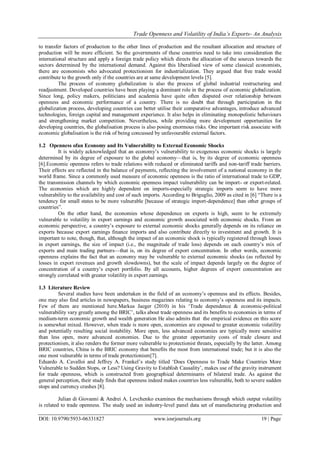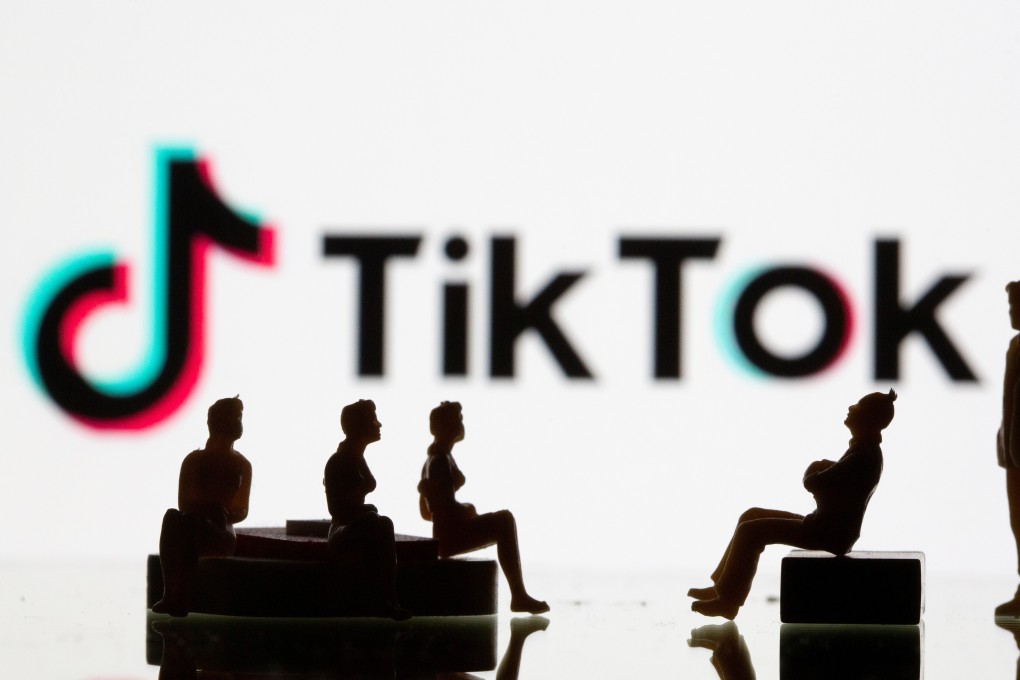OpenAI And ChatGPT: The FTC's Investigation And Its Implications

Table of Contents
The FTC's Concerns Regarding ChatGPT and Data Privacy
The FTC's investigation into OpenAI centers heavily on concerns surrounding data privacy and the responsible use of user information. ChatGPT's popularity hinges on its ability to engage in natural-sounding conversations, but this necessitates the collection and processing of vast amounts of data.
Data Collection and Usage Practices
OpenAI's data collection methods involve gathering user inputs, conversation histories, and potentially other related information. The extent to which these practices comply with existing data privacy laws like the California Consumer Privacy Act (CCPA) and the General Data Protection Regulation (GDPR) is a key area of the FTC's investigation. The FTC is likely scrutinizing whether OpenAI provides sufficient transparency and user control over this data.
- Lack of transparency regarding data retention policies: Users need clear information about how long their data is stored and what happens to it after a certain period.
- Potential for unauthorized data sharing: The FTC is likely investigating whether OpenAI shares user data with third parties without explicit consent, potentially violating privacy laws.
- Insufficient security measures: Concerns exist about the security measures in place to protect user data from breaches and unauthorized access.
- Lack of clear consent mechanisms: The FTC may question the clarity and comprehensiveness of OpenAI's consent mechanisms regarding data collection and use.
Potential for Misinformation and Harm
ChatGPT's ability to generate human-quality text also presents a significant risk: the potential for generating false or misleading information. This raises serious concerns about consumer trust and the potential for harm.
- Spread of false news and propaganda: The ease with which ChatGPT can create convincing but fabricated narratives poses a threat to the integrity of information online.
- Dissemination of harmful health advice: Users seeking medical information from ChatGPT might receive inaccurate or dangerous advice, leading to potential health consequences.
- Creation of convincing phishing scams: ChatGPT's capabilities could be exploited to create highly convincing phishing emails or other forms of online deception.
- Amplification of existing biases and prejudices: The AI's responses could inadvertently reinforce harmful stereotypes and prejudices, perpetuating social inequalities.
Algorithmic Bias and Fairness in ChatGPT
Another critical aspect of the FTC's investigation is the potential for algorithmic bias within ChatGPT. While AI aims for objectivity, the data used to train these models can reflect and amplify existing societal biases.
Identifying and Mitigating Bias
OpenAI's efforts (or lack thereof) to identify and mitigate bias in ChatGPT's responses are under scrutiny. The FTC is likely evaluating the effectiveness of any bias mitigation strategies employed by OpenAI.
- Stereotypical responses based on user demographics: ChatGPT's responses might reflect gender, racial, or other biases present in its training data.
- Unequal treatment of different user groups: Certain user groups might receive different or less helpful responses from the AI compared to others.
- Lack of diverse training datasets: A lack of diversity in the datasets used to train ChatGPT can lead to skewed and biased outputs.
- Insufficient monitoring and evaluation of bias: OpenAI's mechanisms for detecting and addressing bias in its model might be inadequate.
The Impact of Biased AI on Vulnerable Populations
The potential consequences of biased AI are particularly concerning for vulnerable populations. Marginalized communities can experience disproportionate harm due to biased outputs.
- Reinforcement of existing societal inequalities: Biased AI can perpetuate and exacerbate existing social and economic disparities.
- Discrimination in access to services and opportunities: Biased AI systems can lead to unfair or discriminatory outcomes in areas like loan applications, hiring processes, and even criminal justice.
- Erosion of trust in AI systems: Widespread bias can erode public trust in AI technologies and hinder their adoption for beneficial purposes.
- Limited access to redress for biased outcomes: Individuals harmed by biased AI might have limited recourse for seeking redress or compensation.
The Broader Implications of the FTC Investigation for the AI Industry
The FTC's investigation into OpenAI has far-reaching implications for the entire AI industry, underscoring the urgent need for robust regulation.
The Need for Robust AI Regulation
The investigation highlights the critical need for comprehensive regulations to govern the development and deployment of AI systems, especially those interacting directly with consumers.
- Data privacy standards: Clearer and more stringent data privacy regulations are necessary to protect user information.
- Algorithmic transparency and accountability: AI systems should be designed with mechanisms to ensure transparency and accountability for their decision-making processes.
- Mechanisms for redress in cases of harm: Individuals harmed by AI systems should have access to effective mechanisms for redress and compensation.
- Ethical guidelines for AI development: Industry-wide ethical guidelines are needed to guide the responsible development and deployment of AI technologies.
Impact on Innovation and Competition
Increased regulation will undoubtedly impact the pace of AI innovation and the competitive landscape of the AI industry.
- Increased compliance costs for smaller AI companies: Stringent regulations could disproportionately affect smaller AI companies, potentially hindering innovation and competition.
- Potential for stifling innovation due to overregulation: Overly burdensome regulations could stifle innovation by making it more difficult and expensive to develop and deploy new AI technologies.
- Leveling the playing field for ethical AI development: Regulation could incentivize responsible AI development and level the playing field for companies committed to ethical practices.
- Increased consumer trust and adoption of AI: Responsible regulation can enhance consumer trust in AI technologies and foster greater adoption of beneficial AI applications.
Conclusion
The FTC's investigation into OpenAI and ChatGPT underscores the vital need for strong regulations governing AI development and deployment, especially for systems directly impacting consumers. The concerns surrounding data privacy, algorithmic bias, and the potential for misuse necessitate proactive measures to ensure responsible AI. The outcome of this investigation will significantly shape the future of the AI industry, influencing innovation and setting precedents for future AI regulation. Staying updated on the OpenAI and ChatGPT investigation is crucial for understanding the evolving landscape of AI and its impact on all of us. Learn more about the OpenAI and ChatGPT investigation and its potential effects on the future of AI.

Featured Posts
-
 Middle Managers The Unsung Heroes Of Business Success
Apr 22, 2025
Middle Managers The Unsung Heroes Of Business Success
Apr 22, 2025 -
 Chinas Export Dependence Vulnerability To Tariff Hikes
Apr 22, 2025
Chinas Export Dependence Vulnerability To Tariff Hikes
Apr 22, 2025 -
 Just Contact Us Tik Toks Role In Circumventing Trump Era Tariffs
Apr 22, 2025
Just Contact Us Tik Toks Role In Circumventing Trump Era Tariffs
Apr 22, 2025 -
 Top Chinese Indonesian Officials Strengthen Security Ties
Apr 22, 2025
Top Chinese Indonesian Officials Strengthen Security Ties
Apr 22, 2025 -
 Aramco And Byd Join Forces Exploring The Future Of Electric Vehicles
Apr 22, 2025
Aramco And Byd Join Forces Exploring The Future Of Electric Vehicles
Apr 22, 2025
